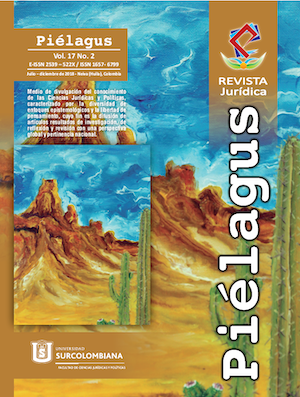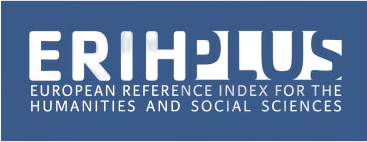Freedom of expression and internet: should judges apply a preferred position doctrine to cases involving the internet?
Libertad de expresión e internet: ¿deberían los jueces aplicar una doctrina de posición preferida a los casos que involucran internet?
##plugins.themes.bootstrap3.article.main##
This paper aims to contribute to obtain an answer to the following question: should the Judiciary apply a preferred position doctrine to free speech cases involving the internet? The fast growth that the internet has experienced on the last decade converted it into an essential a plural medium of expression. This rapid progress has allowed people to access the internet from nearly everywhere, making it into a quasi-Omni-present network of people. Naturally, the insertion of the internet on people’s everyday routine brought along many legal issues, one of them being the definition regarding the eventual limitations that are considered to be valid when it comes to the exercise of the freedom of expression, a fundamental human right on-line.
It is a personal opinion that this definition should be established with two standards in mind: a) freedom of expression has an intrinsic value as a human right, according to article 19 of the United Nations 1948 Declaration of Human Rights and b) every expression manifested on-line depends directly on the code that is designed by companies such as internet service providers. Therefore, the paper aims to analyze how these two standards could interact in a way of obtaining an answer as to how the free speech cases should be interpreted on the context of the Internet.
Downloads
##plugins.themes.bootstrap3.article.details##
I. Alexy, R. (2008). Teoria dos Direitos Fundamentais. Trad. Virgilio Afonso da Silva. São Paulo, p. 99.
II. Balkin, J. (2004). Digital speech and democratic culture. New York University Law Review, 2004. Available at: http://www.yale.edu/lawweb/jbalkin/telecom/digitalspeechanddemocraticculture.pdf
III. Balkin, J. M. (2009). The future of free expression in a digital age. Faculty Scholarship Series. Paper 223. http://digitalcommons.law.yale.edu/fss_papers/223 access on 23.03.2014.
IV. Barlow, J. P. (1996). A Declaration of the Independence of Cyberspace. Available at https://projects.eff.org/~barlow/Declaration-Final.html
V. De la RUE, F. (2011). Report of the Special Rapporteur on the promotion and protection of the right to freedom of opinion and expression. United Nations, 2011. Available at http://www2.ohchr.org/english/bodies/hrcouncil/docs/17session/A.HRC.17.27_en.pdf
VI. Dutton, W. H., Dopatka, A., Hills, M., Law, G., & Nash, V. (2011). Freedom of Connection – Freedom of Expression: The Changing Legal and Regulatory Ecology Shaping the Internet. UNESCO: Available at https://unesdoc.unesco.org/ark:/48223/pf0000191594
VII. Dworkin, R. (2005). Temos direito à pornografia? In: DWORKIN, R.. Uma questão de princípio. São Paulo: Martins Fontes, p. 501.
VIII. Estado do Espírito Santo (2012). Vara Especial Central de Inquéritos Criminais de Vitória/ES. Representação especializada em delitos de trânsito OF 978/2011. Deferimento da medida liminar. Available at http://www.tjes.jus.br/PDF/materias/policia_civil.pdf
IX. Lessig, L. (1999). Code and other laws of cyberspace. Nova Iorque, Basic Books, 1999.
X. Lessig, L. (1998). The New Chicago School. The Journal of Legal Studies, vol. XXVII, Jun. Available at http://www.lessig.org/content/articles/works/LessigNewchicschool.pdf acesso em 28/05/2012.
XI. Maus, I. (2000). Judiciário como superego da sociedade. Novos Estudos CEBRAP, vol. 58, p. 202.
XII. Transparency report. Available at: http://www.google.com/transparencyreport/removals/government/countries/
XIII. Tribunal de Justiça de Santa Catarina. BRASIL, 1ª Vara Cível de Concórdia/SC. Processo nº 019.11.001427-6. Determinação de que a Ré deixe de expor seu veículo em público. Disponível em www.tjsc.jus.br Acesso em 10/01/2014.
XIV. Tribunal de Justiça de Santa Catarina. BRASIL, 29ª Vara Cível do foro central de São Paulo/SP. Processo nº 583.002010.184.534-2. Procedência parcial da demanda. Disponível em http://pt.scribd.com/Raphael%20Tsavkko%20Garcia/d/66460448-Sentenca-caso-Falha-de-Sao-Paulo-1%C2%AA-instancia-bit-ly-qeDkLh Acesso em 15/01/2014.
XV. Toller, F. M. (2010). O formalismo na liberdade de expressão: discussão da diferenciação entre restrições prévias e responsabilidades ulteriores. Trad. Frederico Bonaldo. São Paulo: Saraiva, p. 35.
XVI. United Nations. (1948). The Universal Declaration of Human Rights. Available at: http://www.un.org/en/documents/udhr/















